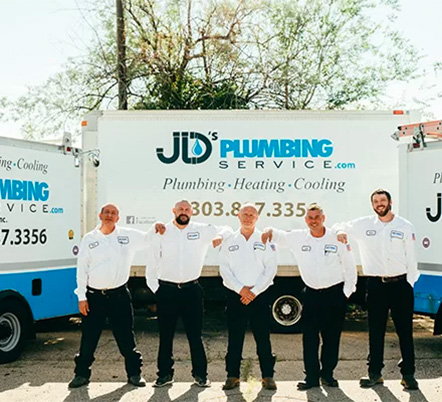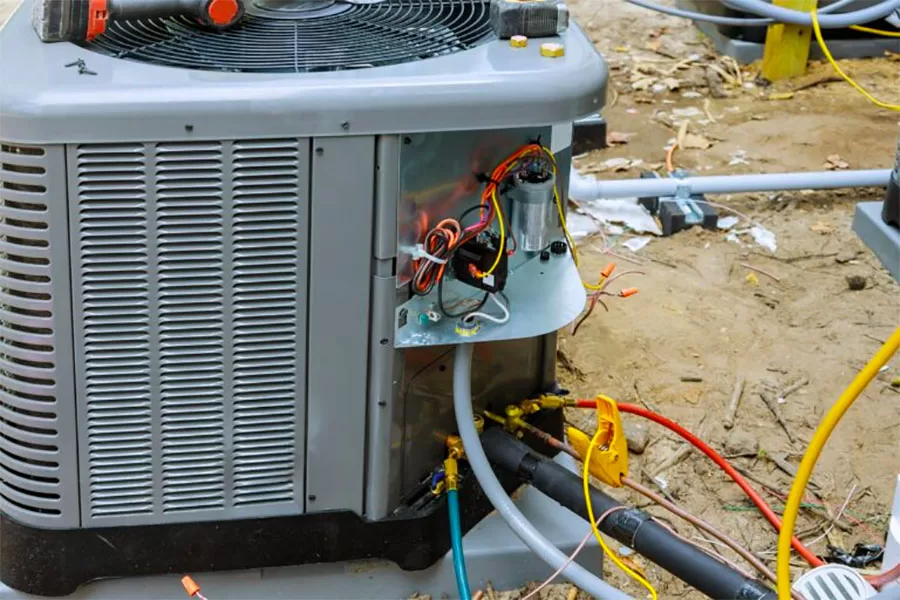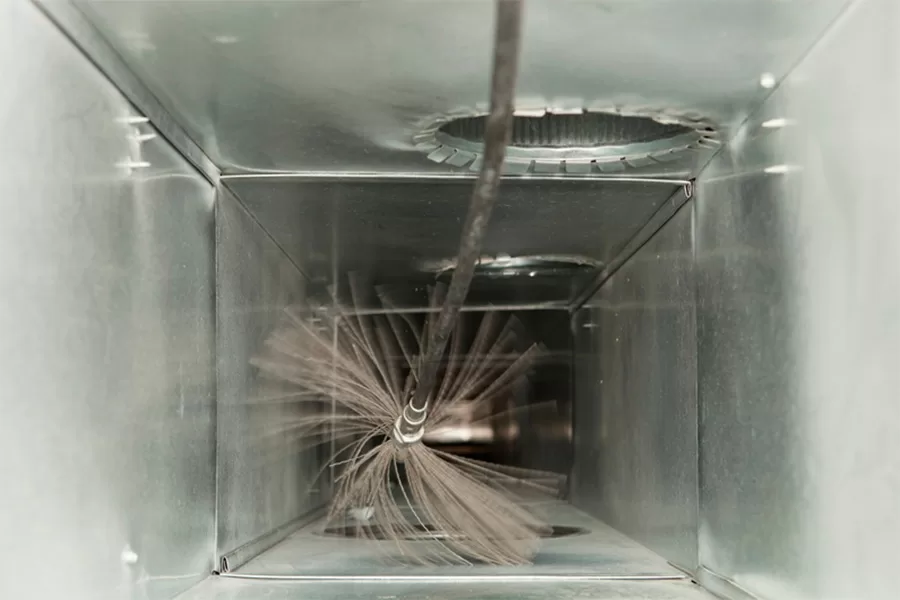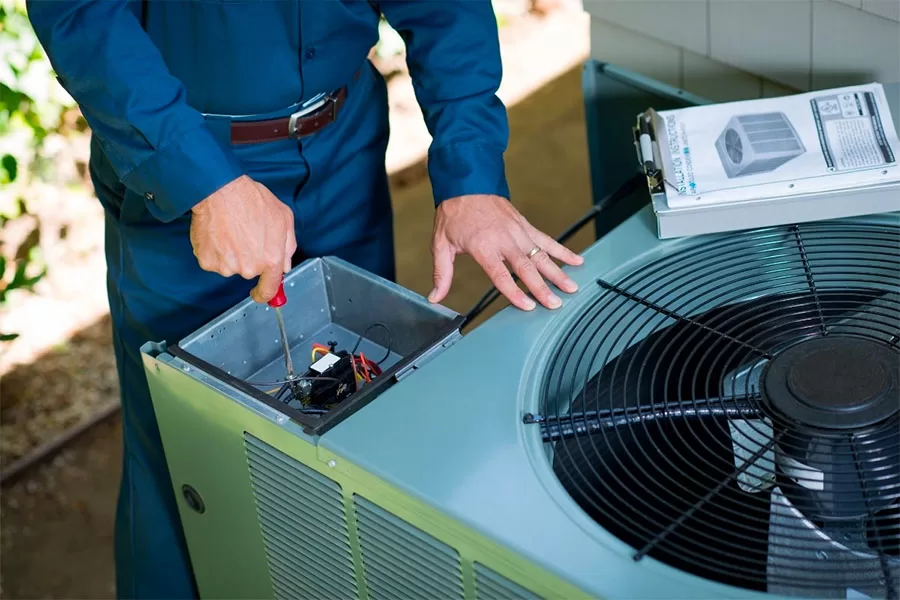How Do I Know if I Need a New AC Compressor?
Does your air conditioner not blow cold air or make strange noises?
It could be a sign that you need a new air conditioner compressor. How Do I Know if I Need a New AC Compressor?
The AC compressor is a vital component that is required for an air conditioning system to function. It’s responsible for compressing refrigerant and circulating it through the AC system.
Without a functioning compressor, your AC won’t cool your home correctly.
However, compressors can fail for many reasons, and it’s not always easy to determine if a replacement is necessary or if you need an AC repair.

Replacing an AC compressor is costly and not something you want to do unnecessarily. What are the signs that indicate a need for AC compressor replacement? In this article, we’ll discuss the signs that indicate your AC compressor is failing and needs to be replaced. So, if you’re experiencing issues with your AC system, keep reading to learn how to identify if a new compressor is a solution to your problem.
What is an AC compressor?
Have you ever wondered what an AC compressor actually does for your home? Let’s break it down.
The AC compressor plays a vital role in the functionality of an air conditioning unit. It takes in the refrigerant and compresses it, turning it into a high-pressure gas.
This gas then moves through the rest of the system, releasing heat and ultimately providing cool air to your home.
Without a functioning compressor, your AC system couldn’t operate effectively, leaving you sweating in the summer heat.
Investing in a high-quality AC compressor is crucial for keeping your home comfortable all season.
What are the Signs That you may Need a New AC compressor?
How Do I Know if I Need a New AC Compressor? If you think your AC compressor may be failing, look out for these signs:

1. No Cool Air – If your air conditioner is not blowing cold air, it could be a sign that your compressor is not working properly. Check to ensure it’s still running, and if it is and there’s still no cold air, you may need to replace the compressor.
2. Strange Noises – If your AC system makes strange noises, such as grinding, humming, or clicking noises, it could be a sign of a faulty compressor.
3. High Energy Bills – If your energy bills have been unusually high even when you’re not running the AC system too often, it could be a sign of a faulty compressor.
4. Refrigerant Leak – If you spot any liquids leaking from your AC system, it could indicate a leak in the compressor. If this is the case, you’ll need to replace the compressor to avoid further damage to your system.
5. The AC Clutch – is not engaging or disengaging correctly. It could be a sign of a failing compressor.
6. Unusual Odors – If you smell a burning odor coming from your AC system, it could indicate that the compressor is overheating. This could be caused by a lack of refrigerant or a faulty electric motor.
7. Low Refrigerant Levels – If your AC system is not cooling correctly and you find that the refrigerant levels are low, it could mean that the compressor leaks. This will require the replacement of the compressor.
6. Tripped Circuit Breaker -If your air conditioning system is constantly tripping the circuit breaker or causing your fuses to blow, it could be a sign that your compressor is failing. This problem occurs when the compressor tries to draw too much electricity, causing the circuit breaker to trip.

7. Reduced Airflow – If you notice reduced airflow coming from your air conditioning unit, this could be a sign that the compressor is struggling to push the refrigerant through the system.
This problem can be caused by a faulty compressor or a clogged air filter. If changing the air filter does not improve airflow, it’s worth inspecting the compressor.
8. AC Unit Won’t Turn On – If your AC unit doesn’t turn on, this may be a sign of a bad air conditioning compressor. The compressor is responsible for starting the AC unit, so it won’t turn on if it isn’t working correctly.
Lack of Cool Air
Lack of cool air is one of the most obvious signs that you may need a new AC compressor. If your AC system is running but not blowing cold air, it could indicate that the compressor is malfunctioning or has failed altogether.
To be sure, check to see if the compressor is still running and if the refrigerant levels are low. If they are, then you’ll need to replace the compressor.
Unusual Noises
Unusual noises indicate that something may be wrong with the AC compressor. If you hear humming, grinding, or clicking noises coming from the unit, this could mean that the compressor is malfunctioning and needs to be replaced.
You should also check for any rattling sounds, indicating a mechanical problem with the compressor. If these noises persist and you cannot determine the cause, you should call a professional for help.
High Energy Bills
If your energy bills have suddenly increased significantly and you’re not running the AC system too often, this could indicate a bad compressor.
A malfunctioning compressor will require more energy to run, leading to higher energy costs. If you suspect this is the cause of your high bills, having a professional inspect the system is best.
AC Refrigerant Leaks
If you notice any liquids leaking from your AC unit, this could indicate a leak in the compressor. This serious issue needs to be addressed immediately as it can cause further damage to your system if not taken care of. If this is the case, you’ll need to replace the compressor.
The AC Compressor Clutch is Not Engaging or Disengaging Properly
If you find that the clutch of your AC system is not engaging or disengaging properly, this could be a sign of a failing compressor. A bad AC compressor clutch should be addressed as soon as possible to prevent further damage to the system.
Unusual Odors
If you smell a burning odor coming from your AC system, this could indicate that the compressor is overheating. This could be due to a lack of refrigerant or a faulty electric motor.
It’s best to call a professional for help if you suspect a faulty compressor.
Low Air Conditioner Refrigerant Levels
Low refrigerant levels in an air conditioner can be a sign of a faulty compressor. If the refrigerant levels are low, it means that the compressor is leaking and needs to be replaced.
Low refrigerant levels can cause the AC system to run inefficiently and will lead to higher energy costs. Low levels can also cause the system to freeze up, reducing its effectiveness at cooling your home.
Tripped Circuit Breaker
A tripped circuit breaker is another sign that you may have an AC compressor failure. If the compressor is trying to draw too much electricity, it can cause a circuit breakers trip, shutting off power to the air conditioning system.
Check the circuit breaker panel and reset the circuit breaker switch if necessary. If the problem persists, it’s best to call a professional for help.
This problem can be caused by several factors, such as a faulty motor or low refrigerant levels. If your AC system is constantly tripping the circuit breaker, it ’s best to call a professional for help.
Reduced AC Airflow
Reduced AC Airflow is another possible sign that you may need a new air conditioning compressor. If the airflow from your AC system is significantly reduced, this could indicate a problem with the compressor. This can happen due to a lack of refrigerant, broken fan motor or broken motor bearing motor.
It is best to have a professional inspect the system to determine the cause of the reduced airflow and recommend any necessary repairs
AC Unit Won’t Turn On
If your air conditioner unit is not working at all, it could be a sign that you need a new AC compressor. This could be caused by a number of different issues, such as power failure, low refrigerant levels, or even a faulty electric motor.
If the unit does not turn on when you attempt to switch it on, it is important to have a professional inspect the system and determine the cause.
If you’re having any of the above issues with your AC system, it may be time to get an air conditioning compressor replacement.
It is important to have a professional inspect the system to ensure that it is functioning correctly and that all major components are in good condition before the replacement compressor is purchased.

Steps to Diagnose an Air Conditioning Compressor Problem
- Check for visible damage
- Check the belt for wear or damage.
- Inspect the clutch for proper function.
- Test the electrical connections and wiring.
- Measure the compressor’s pressure levels.
- Check Compressor oil
- Contact an HVAC Professional
Considerations Before AC Compressor Replacement
Before considering an AC compressor replacement, there are essential things to remember.
First, you’ll need to find out the root cause of the problem. It’s essential to ensure the compressor is the culprit before replacing it.
Secondly, you need to determine whether replacing the compressor or the entire AC unit is more cost-effective.
Lastly, looking for a reputable technician with experience in compressor replacements would be best. They will ensure that the replacement is done correctly, preventing further issues down the line.
By considering these considerations, you can make an informed decision and ensure that your AC system stays functional and efficient.
AC Compressor Replacement Cost Range
AC compressor replacement can be a costly repair. The cost of replacing an AC compressor can vary depending on the size and type of system, as well as the complexity of the installation.
Generally, a new AC compressor will range from $400 to $1,500, with an average cost of around $800. Additional costs may include labor charges for installing the new compressor and related parts.
What is the Cost of Replacement vs. AC repair?
Do you find yourself constantly weighing the options of repairing your AC system versus replacing it altogether? It can be a tough decision that requires careful consideration of costs and benefits.
AC repair costs can vary depending on the issue, but generally, it tends to be less expensive than a full replacement.
However, if your system constantly needs repair, it may be more cost-effective in the long run to opt for a replacement.
Not only will a new system have better energy efficiency and lower operating costs, but it will also come with a warranty and peace of mind.
Ultimately, the decision between air conditioning repair services versus replacement should be based on a consultation with an experienced AC technician who can provide expert advice.
Conclusion and Recommendations for AC Compressor Replacement
In conclusion, there are many factors to consider when deciding whether or not to replace an AC compressor. It is essential to diagnose the root cause of the problem before replacing it, as this will help you decide if it is more cost-effective to get a new AC unit or just the compressor.
Additionally, it is essential to consult a professional technician to ensure the replacement is done correctly and safely.
So How Do You Know if I Need a New AC Compressor?
Contact JD’s Plumbing Denver AC Repair is a trusted provider of AC repair services in the Denver area. Their experienced technicians can help you determine if an AC compressor replacement is necessary and provide you with a free quote. Contact them today for more information!




